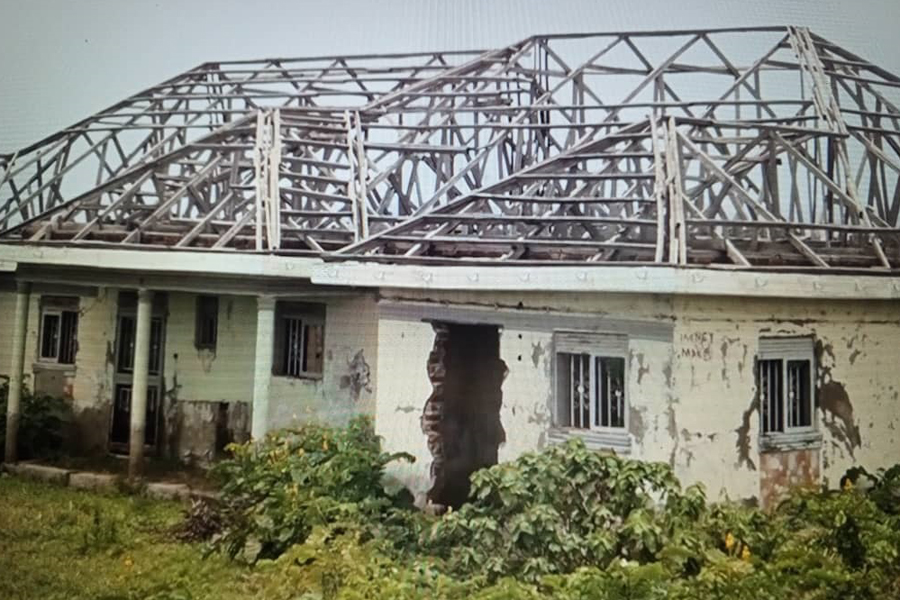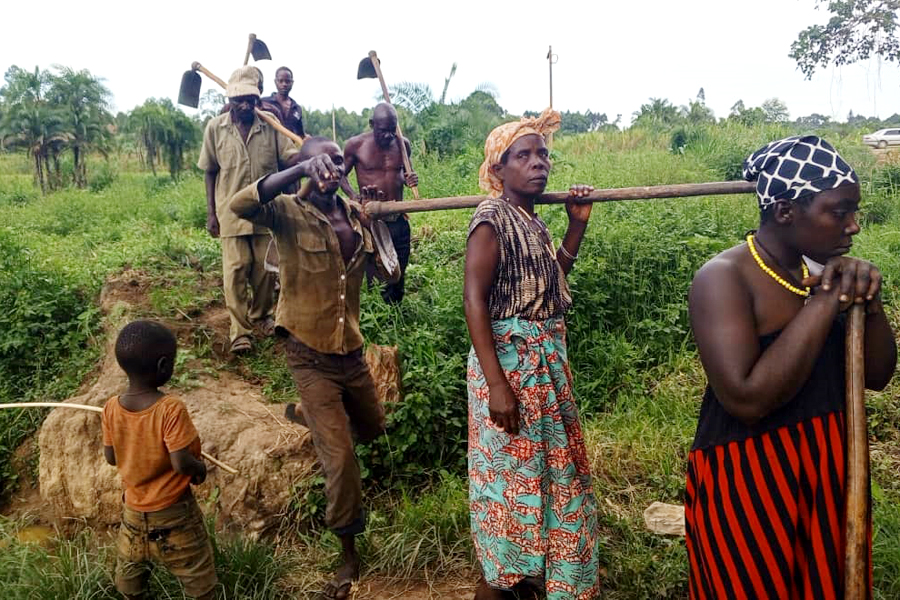Kenya has unveiled tough measures to curb the spread of the coronavirus, following the identification of the country's first case on Friday.
While working in Nairobi over the past fortnight, RFI's David Coffey noticed a palpable sense of apprehension on the streets, with a generous dose of xenophobia, as the country braced for the Covid-19 wave to crash on its shores.
Keep Reading
Having been asked to assist with the move of RFI’s Kiswahili service to Nairobi at the beginning of this month, I was looking forward to finding myself in a familiar environment, having lived in neighbouring Tanzania for the best part of four years.
It was a great opportunity to catch up with old colleagues from the Dar es Salaam days, to meet the new additions to the RFI Kiswahili team, and help with their induction into their new working environment.
Although Covid-19 had yet to land on Kenyan soil, Virusi vya Korona was all over the news.
The atmosphere on the streets of downtown Nairobi was subdued. Anxiety seemed to permeate the capital’s Central Business District.
People would invite me to step ahead of them into an elevator, then remain behind, leaving me to continue upwards on my own.
As the days progressed, and my daily routine saw me taking many a solitary lift to and from our temporary offices at the Nation Centre, social distancing became the norm within the building, handshakes disappeared and large bottles of hand sanitiser materialised on almost every desk.
Nothing had been officially implemented, it just evolved that way incrementally. The upkeep of staircases and handrails, spotless at the best of times, mutated into a state of constant sanitary maintenance.
Nairobi was preparing for the worst, as the full lock-down of Italy hit the headlines.
As a mzungu (Swahili for European) on the streets of the Kenyan capital, one is used to being approached by hawkers, taxi drivers and kids asking for coins.
By the middle of last week, all that had come to a halt.
In a local bar - MoJo’s - just a stone’s throw from Kenyatta Avenue, regulars would rise from their tables, mumbling “corona” as they resettled at a safe distance from the foreigner, me.
“Are you from Italy?” shouted a woman from her barstool.
“You’re not from Italy, are you?” All ears appeared to prick up as I replied in the negative.
One could view the reaction as understandable, reasonable even, given the reach of the outbreak and the draconian measures that have still failed to contain Covid-19.
Yet it was curious to feel stigmatised in a city I know so well.
As with the subtle evolution of precautionary measures that crept into our daily lives at the office - the purchase of extra sanitisers and the sourcing of protective masks .
I found myself essentially self-isolating at my hotel after work, as the Nairobi streets became less and less welcoming.
Once the cancellation of flights to Europe hit the headlines across the Kenyan media, it was time to make a decision.
In view of the insidious nature of Covid-19, once Italy went into quarantine, it was only a matter of time before France would follow suit.
I had to roll the dice and decide between sticking it out in Kenya, where the virus had yet to strike, or getting back to Paris ahead of border closures, flight cancellations and the inevitable lockdown.
When the first confirmed case of Covid-19 was declared in a suburb of Nairobi last Friday, the writing was on the wall.
Get home now, or face a month in quarantine in a downtown hotel room.
It was an abrupt end to an assignment that had me working and training with excellent colleagues, both old and new, but I sensed the tense mood outside the RFI newsroom could swing in any direction on the street. With a heavy heart, I got the next flight back to Paris.
Story sourced from Radio France International (RFI)













